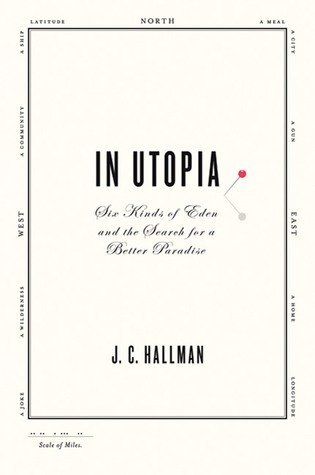What do you think?
Rate this book


288 pages, Kindle Edition
First published January 1, 2010
A compilation from 1561 demonstrated clearly that the joke had been lost: Utopia was listed alongside seventeen other societal systems, a few of which happened to be real. More's perfect commonwealth tickled no Italian funny bone because it was just another layer set atop a utopian spirit already well established in Italy. For years Florence had been thought a perfect system, and by the 1500s Venice had been an ongoing republic for eleven centuries, without internal strife and without ever falling to foreign rule. Now, borrowing More's template, utopias were written starring Venice as unironic protagonist.
To work, my aeropainters and aerosculptors! My aeropoetry will ventilate your brains like whirring propellers!